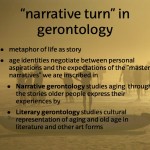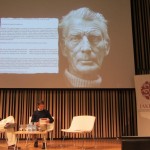Gogoari buruzko gure irakurketa taldean, Ezequiel Di Paolo-k proposatu zuen Heinrich von Kleist idazlearen testu labur bat, On the Gradual Construction of Thoughts During Speech. Interesgarria da oso, eta arrazoi anitzengatik.
Horien artean, azpimarratu nahiko nuke bigarren (edo hirugarren, laugarren…) hizkuntza ikasten ari garenontzat funtsezkoa den ikasketa bat, alegia: hitz egiterakoan gehiegi pentsatzea ez dela komenigarria. Hitz egiteko, esaldia biribilik asmatzea bainoago hobe dela partaide batekin elkarrizketan hastea. Kleistek esan bezala:
I always have some obscure preconception, distantly connected in some way with whatever I am looking for, I have only to begin boldly and the mind, obliged to find an end for h s beginning, transforms my confused concept as I speak into thoughts that are perfectly clear, so that, to my surprise, the end of the sentence coincides with the desired knowledge.
Kleistek irudi baten bidez adierazten du zergatia: “speech is not an impedinicnt, a sort of brake on the wheel of intellect, but like a second wheel running parallel with it on the same axle.”
[TO BE CONTINUED]
Kleist, H., & Hamburger, M.
(1951). On the Gradual Construction of Thoughts During Speech. German Life and Letters, 5(1), 42-46.



